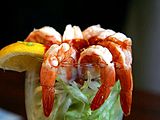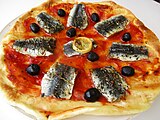**Definition and History of Pescetarianism:**
– Pescetarianism is a diet that includes fish but excludes other animal meats.
– Coined in the UK in the late 1980s, blending the Italian word for fish and the English word for vegetarian.
– Pythagoras and Plato were early advocates of vegetarian-oriented diets.
– Medieval European monks abstained from meat but not fish.
– Marcion of Sinope and his followers consumed fish but avoided fowl or red meat.
**Global Trends and Demographics:**
– Ipsos MORI reported 3% of the global population as pescetarians in 2018.
– Pescetarian diets gained popularity in the mid-to-late 2010s.
– Ipsos MORI found 40% of pescetarians had followed the diet for over a couple of years.
– Pescetarianism is more popular among women globally.
– Plant foods are primary in a pescetarian diet.
**Health Benefits and Risks of Pescetarianism:**
– Pescetarianism linked to lowered risk of cardiovascular diseases.
– Fish is a good source of omega-3 fatty acids, important for heart health.
– Studies suggest pescetarianism aids in weight management.
– Potential risks include exposure to mercury in certain fish species.
– Need to ensure a balanced intake of nutrients, including protein and iron.
**Environmental Impact and Sustainability of Pescetarianism:**
– Pescetarian diets generally have a lower carbon footprint compared to meat-based diets.
– Sustainable fishing practices are crucial for maintaining seafood populations.
– Overfishing and bycatch are significant concerns in seafood consumption.
– Awareness of sustainable seafood choices is essential for pescetarians.
– Potential for sustainable aquaculture practices to reduce strain on global fisheries.
**Cultural and Religious Perspectives on Pescetarianism:**
– Pescetarianism is present in various cultural cuisines worldwide.
– Aligns with dietary guidelines of certain religious practices.
– Integrates into fasting rituals of different faiths.
– Symbolism of fish in religious and cultural contexts.
– Pescetarianism as a form of abstinence in Roman Catholic, Eastern Orthodox, and other traditions.
Pescetarianism (/ˌpɛskəˈtɛəri.ənɪzəm/ PESK-ə-TAIR-ee-ə-niz-əm; sometimes spelled pescatarianism) is a dietary practice based on the consumption of fish and shellfish to the exclusion of land-based meats. The practise incorporates seafood into an otherwise vegetarian diet, and may or may not include other animal products such as eggs and dairy products. Approximately 3% of adults worldwide are pescetarian, according to 2017–2018 research conducted by data and analytics companies.
| Pescetarianism | |
|---|---|
   | |
| Description | |
| A diet in which seafood is the only meat | |
| Related Dietary Choices | |
| Related diets | |
| Diet classification table | |
